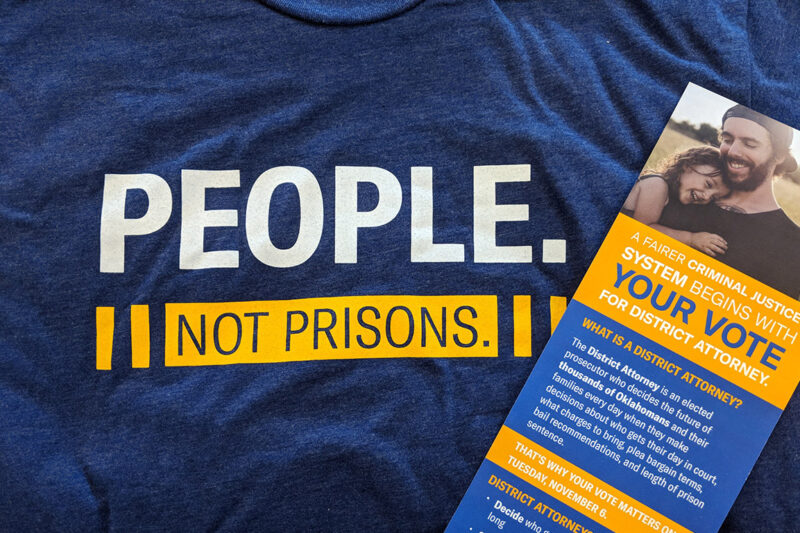
Oklahoma’s incarceration crisis was not created in one election cycle, and it will take more than one to fix it. But the fact that an entrenched incumbent district attorney in Tulsa County was pulled into runoff against an opponent preaching reform this week shows that voters are not okay with the status quo.
Voters in Tulsa County know firsthand the human costs of mass incarceration. Polling shows that almost a third of the electorate knows someone who has been arrested, charged, or convicted of a crime, and more than a third knows someone who has struggled with substance abuse or addiction.
The same poll showed that voters value candidates who fight for solutions like rehabilitation, treatment, and diversion programming instead of incarceration. Sixty-five percent of Republican voters polled would be more likely to vote for a candidate committed to holding police and prosecutors accountable for misconduct, with similar numbers showing support for a candidate committed to transparency in the district attorney’s office.
The ACLU of Oklahoma’s Campaign for Smart Justice has engaged with Republican voters during the primary season in Tulsa, knocking on upwards of 4,000 doors, communicating by mail with more than 13,000 households, and asking candidates to explain the details of their platforms in a candidate questionnaire.
For the ACLU of Oklahoma, the Tulsa County primary is one of the first steps in a long-term voter education effort to change the narrative around mass incarceration in Oklahoma — a change Oklahoma voters are eager for. Combined with legislative and litigation strategies, this electoral work helps change the incentives for prosecutors, a strategy that the ACLU Campaign for Smart Justice is pursuing across the country.
Oklahoma voters have already shown that sensible criminal justice reform is a bipartisan issue. On election night in 2016, while all 77 counties in Oklahoma went to Donald Trump, criminal justice reform supporters watched as the state also overwhelmingly passed State Questions 780 and 781. These reforms paved the way to implement a law that reclassified simple drug possession as a misdemeanor and changed the felony threshold for property crimes from $500 to $1000. It was the start of an ongoing conversation, one that put elected officials on notice that an outdated tough-on-crime attitude is no longer acceptable.
On Tuesday, more Tulsa County residents voted for district attorney than at any point in time in the last two decades. But our work has just begun. Oklahoma primary runoffs are scheduled for August 28, and the general election is November 6. The eyes of reformers and opponents alike will be on Oklahoma to see if the changes that voters so clearly desire become a reality.


